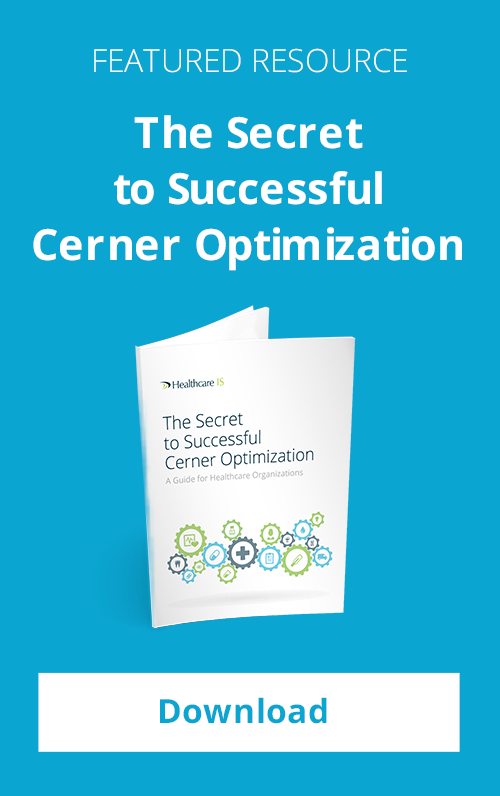Artificial intelligence (AI) has the potential to completely revolutionize patient care. Here are a few of the positive changes that could take place following significant AI advancements in the field:
- Information available in electronic health records (EHR) can be leveraged using AI for next-level clinical decision support.
- Drug treatments could be customized based on a patient’s medical history.
- Continuous symptom monitoring through interconnected devices could lead to the detection of serious health problems at early stages.
Simply put, AI allows for the analysis of data on an unprecedented scale, laying the groundwork for major healthcare transformations.
EHR is the Foundation for Effective AI
The potential patient care benefits of AI are directly related to the recent widespread adoption of EHR. Computer software can analyze the data in EHR to supply recommendations to medical staff based on rule-based criteria and more complex algorithms. Already, medication orders in Computerized Physician Order Entry (CPOE) systems are checked by clinical decision support (CDS) systems for any contraindications or patient allergies. These systems also provide clinicians with recommended medications and doses. As machine learning becomes more sophisticated, the quality of those recommendations will continually improve and the potential use cases will keep increasing.
For the time being, AI technology remains dependent on advances in EHR systems. Those advances are only possible, however, if the clinicians using the systems become more engaged and comfortable with them. In order for that to happen, the systems themselves need to become more user friendly and easier to understand. Once that happens, the next step will be expanding the collection of data and properly integrating systems so that AI can reach its full potential.
The Evolution of AI in Healthcare
Today, CDS is often built on “if-then” formulas (a knowledge-based system) that are limited. Many provide excessive alerts that are often irrelevant. The ensuing alert fatigue can frustrate physicians, cause them to disengage with the system, and ultimately lead to mistakes.
The next level of CDS will be more intuitive and autonomous, made better through a combination of improved algorithms, advanced machine learning, and input from clinicians who work with the software. The latter is increasingly important, because the only way for AI to successfully develop is for it to imitate the thinking of a physician. The best way to do this is to incorporate clinician feedback.
One important factor to remember is that AI’s success not only depends on having quality data, but on having a lot of it. A great example is voice command apps like Apple’s Siri or Amazon’s Alexa. The reason those apps work so well is due to the large amounts of user data Apple and Amazon have been able to collect. Likewise, the more health information AI is able to acquire, the smarter it will eventually become. For example, connections can be formed between lab levels and subsequent diagnoses entered into the medical record. Such correlative learning extrapolated over thousands of health records will enable AI technology to recognize patterns and generate more advanced hypotheses based on patient data.
The Great Potential of AI
In coordination with EHR, future AI may also be used for diagnosis. A patient could explain some of his symptoms to the AI and, in coordination with the patient’s medical history, the AI could make a cursory diagnosis and triage the patient for care by a doctor.
AI could also be used to create treatment plans by analyzing clinical notes, lab data, and medical history. IBM Watson for Oncology is an example of said application in its infancy.
The combination of AI and large-scale data collection will (with regulatory approval) allow anonymized records to be combined to find patterns. In other words, if a patient suffers an unexpected physical event, their medical history could be looked at in comparison to many other patients who suffered a similar fate. With universal systems reporting data between hospitals, serious and unforeseeable conditions like epidemics could be identified early. Such a system would also lead to better practices overall and could result in cost savings by catching problems before escalation and avoiding misdiagnoses.
Improve EHR in Order to Improve AI
As indicated earlier, the challenge for healthcare IT is to increase clinician use of EHR and CDS, ensuring the electronic records have accurate information. Improving interoperability between all healthcare systems is similarly vital. In many cases, consultants can help organizations ramp up in this area.
As sophisticated as AI may become, the accuracy of EHR data is still at the core of its effectiveness. A physician who gets bad data, either from a patient who provides an inaccurate medication list or from faulty test results, cannot make an informed decision about the proper course of treatment. Similarly, inaccurate information in an EHR would cause an AI system to miss potential health issues or medication interactions. It could also lead to mistreatment of a patient's condition. While most organizations have adopted EHR, most have not reached the stage in which the records are fully actionable for either clinicians or CDS systems.
Better data must be captured at patient intake, monitoring (perhaps through personal medical devices) must be improved, and all systems must be integrated so that test results seamlessly appear in the EHR. Workflows and processes ultimate determine success. Information services departments must work closely with human resources and the Chief Medical Officer to ensure that effective use of EHR is a priority.
Learn more about how emerging technologies are leading to exciting healthcare innovations by downloading our latest eBook "The Future of Healthcare: How Technology Could Change the Way Healthcare is Administered".



Comments